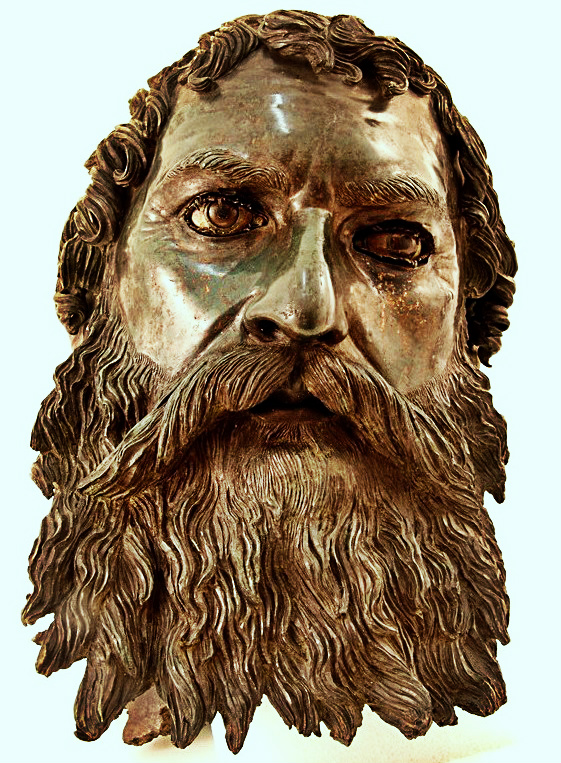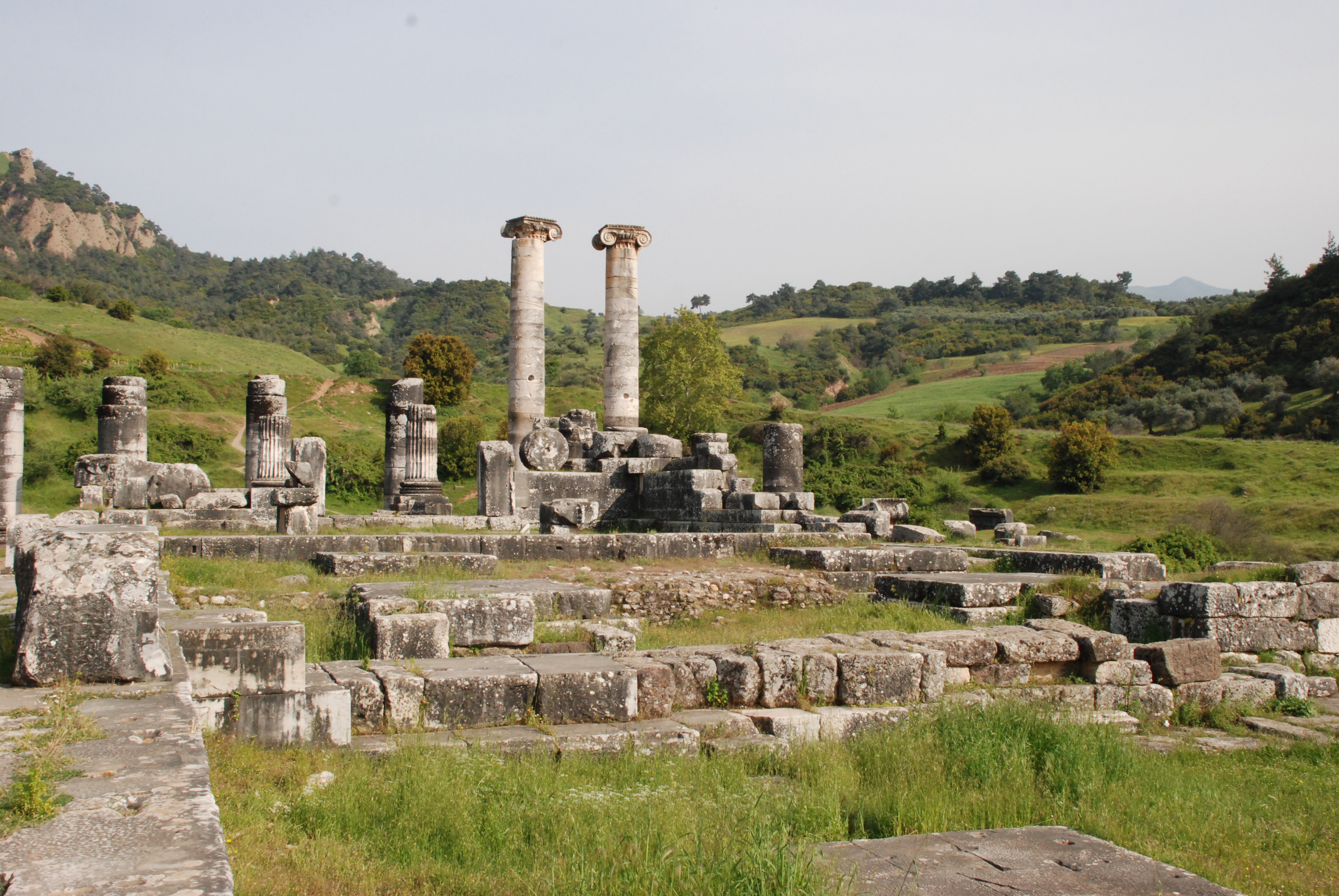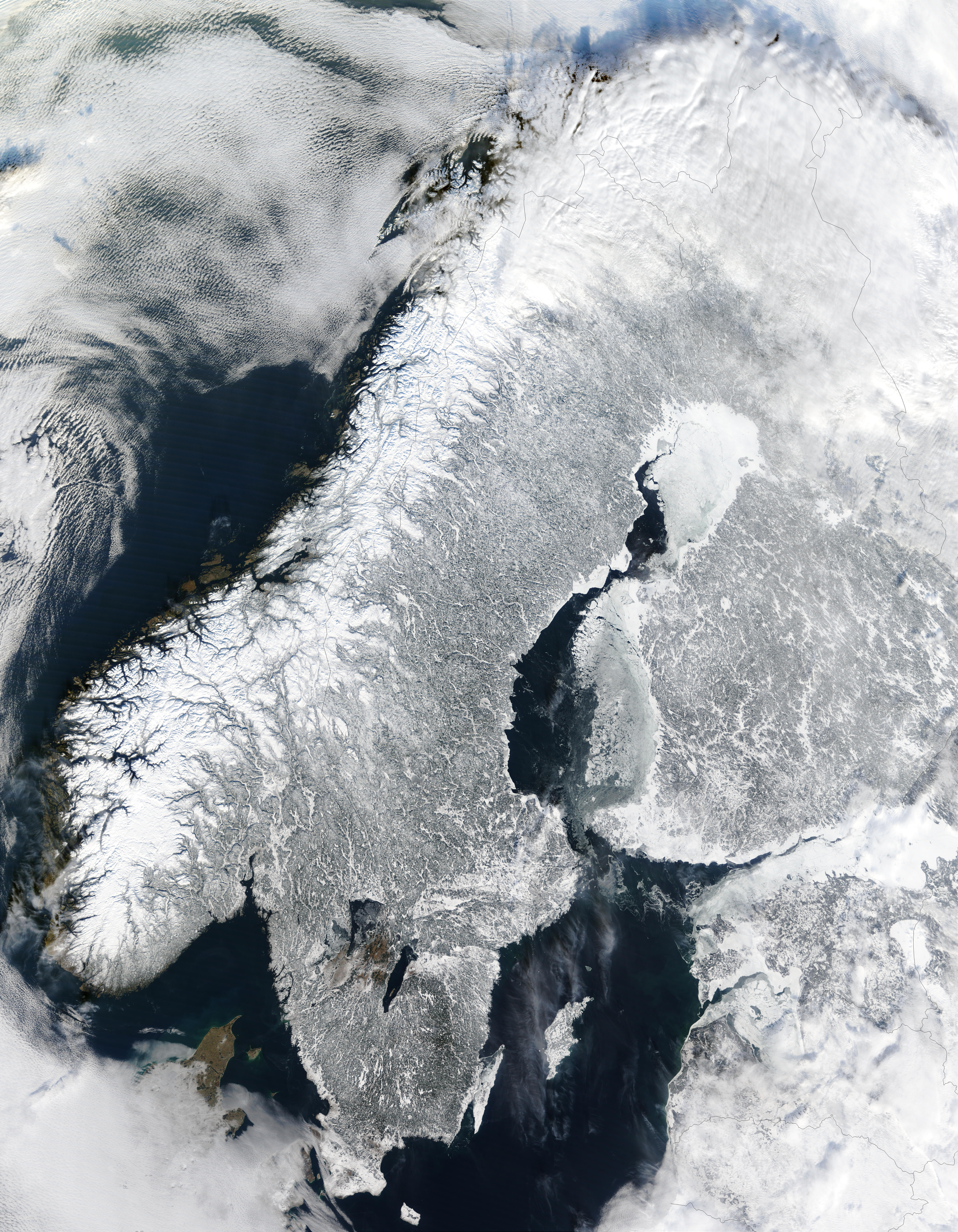|
Dercyllidas
Dercylidas (Greek: Δερκυλίδας) was a Spartan commander during the late 5th and early 4th century BCE. He was nicknamed Sisyphus for his cunning and inventiveness. In 411 BCE he was appointed harmost at Abydos in the Hellespont. In 399 BCE he was told by Antisthenes of Sparta that his command would be prolonged for another year at least. From 399 BCE to 397 BCE, Dercylidas succeeded Thibron as commander of the army that was sent to support the Ionian Greeks against the Persians. Arriving in Asia-Minor he took command of Thibron's army and advanced against the cities of the Troad; he took the cities of Hamaxitus, Colonae, Arisba, Ilium and Cerbenia. After this he concluded a armistice of eight months with Pharnabazus, the Satrap of Hellespontine Phrygia, and fought a campaign against the Thracians of Bithynia. After having ravaged the Bithynian countryside he took his force across the Dardanelles to Europe on the behest of the Greeks of the Chersonese who were unde ... [...More Info...] [...Related Items...] OR: [Wikipedia] [Google] [Baidu] |
Antisthenes Of Sparta
Antisthenes of Sparta was a Spartan admiral in the Peloponnesian war. Antisthenes was deployed in 412 BCE, as the commander of a squadron, to the coast of Asia Minor. He was named as the successor to Astyochus, in case the Spartan commissioners thought it necessary to deprive that officer of his command. He is mentioned again in 399 BCE when, along with two other commissioners, he was sent to inspect the state of affairs in Asia, and announce to Dercyllidas that his command was to be prolonged for another year. There was also an Athenian general called Antisthenes.Xenophon, ''Memorabilia'', iii. 4. §1 See also * Peloponnesian war The Second Peloponnesian War (431–404 BC), often called simply the Peloponnesian War (), was an Ancient Greece, ancient Greek war fought between Classical Athens, Athens and Sparta and their respective allies for the hegemony of the Ancien ... Notes 5th-century BC births 4th-century BC deaths 5th-century BC Spartans Ancient Sparta ... [...More Info...] [...Related Items...] OR: [Wikipedia] [Google] [Baidu] |
Colonae
Kolonai (; ) was an ancient Greek city in the south-west of the Troad region of Anatolia. It has been located on a hill by the coast known as Beşiktepe ('cradle hill'), about equidistant between Larisa to the south and Alexandreia Troas to the north. It is 3.3 km east of the modern village of Alemşah in the Ezine district of Çanakkale Province, Turkey. Its name in Ancient Greek is the plural form of (''kolōnē''), 'hill, mound', a common name for promontories with hills on them in the Eastern Mediterranean. It is not to be confused with Lampsacene Kolonai, a settlement situated in the hills above Lampsacus in the north-east of the Troad. History Pottery finds suggest that Kolonai was inhabited in prehistoric times, but it is unknown whether there was any continuity between these period of its settlement and the Greek period. Greek ceramic material appears on the site from the 7th century BC, marking its foundation as a Greek settlement. At the period in which Daës ... [...More Info...] [...Related Items...] OR: [Wikipedia] [Google] [Baidu] |
Greek Language
Greek (, ; , ) is an Indo-European languages, Indo-European language, constituting an independent Hellenic languages, Hellenic branch within the Indo-European language family. It is native to Greece, Cyprus, Italy (in Calabria and Salento), southern Albania, and other regions of the Balkans, Caucasus, the Black Sea coast, Asia Minor, and the Eastern Mediterranean. It has the list of languages by first written accounts, longest documented history of any Indo-European language, spanning at least 3,400 years of written records. Its writing system is the Greek alphabet, which has been used for approximately 2,800 years; previously, Greek was recorded in writing systems such as Linear B and the Cypriot syllabary. The Greek language holds a very important place in the history of the Western world. Beginning with the epics of Homer, ancient Greek literature includes many works of lasting importance in the European canon. Greek is also the language in which many of the foundational texts ... [...More Info...] [...Related Items...] OR: [Wikipedia] [Google] [Baidu] |
Thracians
The Thracians (; ; ) were an Indo-European languages, Indo-European speaking people who inhabited large parts of Southeast Europe in ancient history.. "The Thracians were an Indo-European people who occupied the area that today is shared between Thrace, north-eastern Greece, Romania, and north-western Turkey. They shared the same language and culture. There may have been as many as a million Thracians, divided among up to 40 tribes." Thracians resided mainly in Southeast Europe in Present (time), modern-day Bulgaria, Romania, North Macedonia, northern Greece and European Turkey, but also in north-western Anatolia, Anatolia (Asia Minor) in Turkey. The exact origin of the Thracians is uncertain, but it is believed that Thracians like other Indo-European speaking groups in Europe descended from a mixture of Proto-Indo-Europeans and Early European Farmers. Around the 5th millennium BC, the inhabitants of the eastern region of the Balkans became organized in different groups of Indi ... [...More Info...] [...Related Items...] OR: [Wikipedia] [Google] [Baidu] |
Pharnabazus (5th Century BC)
Pharnabazus II (Old Iranian: ''Farnabāzu'', ; ruled 413-374 BC) was a Achaemenid Empire, Persian soldier and statesman, and Satrap of Hellespontine Phrygia. He was the son of Pharnaces II of Phrygia and grandson of Pharnabazus I of Phrygia, Pharnabazus I, and great-grandson of Artabazos I of Phrygia, Artabazus I. He and his male ancestors, forming the Pharnacid dynasty, had governed the satrapy of Hellespontine Phrygia from its headquarters at Dascylium since 478 BC. He married Apama, daughter of Artaxerxes II of Persia, and their son Artabazus of Phrygia, Artabazus also became a satrap of Phrygia. According to some accounts, his granddaughter Barsine may have become Alexander the Great's concubine. According to research by Theodor Nöldeke, he was descended from Otanes, one of the associates of Darius the Great, Darius in the murder of Smerdis. Satrap of Hellespontine Phrygia War with Sparta against Athens (c.413-404 BC) Athens was the dominant power in the Aegean Sea, Aege ... [...More Info...] [...Related Items...] OR: [Wikipedia] [Google] [Baidu] |
Ephesus
Ephesus (; ; ; may ultimately derive from ) was an Ancient Greece, ancient Greek city on the coast of Ionia, in present-day Selçuk in İzmir Province, Turkey. It was built in the 10th century BC on the site of Apasa, the former Arzawan capital, by Attica, Attic and Ionians, Ionian Greek colonists. During the Classical Greece, Classical Greek era, it was one of twelve cities that were members of the Ionian League. The city came under the control of the Roman Republic in 129 BC. The city was famous in its day for the nearby Temple of Artemis (completed around 550 BC), which has been designated one of the Seven Wonders of the Ancient World. Its many monumental buildings included the Library of Celsus and a theatre capable of holding 24,000 spectators. Ephesus was a recipient city of one of the Pauline epistles and one of the seven churches of Asia addressed in the Book of Revelation. The Gospel of John may have been written there,Stephen L Harris, Harris, Stephen L., ''Under ... [...More Info...] [...Related Items...] OR: [Wikipedia] [Google] [Baidu] |
Lydia
Lydia (; ) was an Iron Age Monarchy, kingdom situated in western Anatolia, in modern-day Turkey. Later, it became an important province of the Achaemenid Empire and then the Roman Empire. Its capital was Sardis. At some point before 800 BC, the Lydian people achieved some sort of political cohesion, and existed as an independent kingdom by the 600s BC. At its greatest extent, during the 7th century BC, it covered all of western Anatolia. In 546 BC, it became a Lydia (satrapy), satrapy of the Achaemenid Empire, known as ''Sparda'' in Old Persian. In 133 BC, it became part of the Roman Republic, Roman Asia (Roman province), province of Asia. Lydian coins, made of electrum, are among the oldest in existence, dated to around the 7th century BC. Geography Lydia is generally located east of ancient Ionia in the modern western Turkish provinces of Uşak Province, Uşak, Manisa Province, Manisa and inland İzmir Province, İzmir.Rhodes, P.J. ''A History of the Classical Greek ... [...More Info...] [...Related Items...] OR: [Wikipedia] [Google] [Baidu] |
Ionia
Ionia ( ) was an ancient region encompassing the central part of the western coast of Anatolia. It consisted of the northernmost territories of the Ionian League of Greek settlements. Never a unified state, it was named after the Ionians who had settled in the region before the archaic period. Ionia proper comprised a narrow coastal strip from Phocaea in the north near the mouth of the river Hermus (now the Gediz), to Miletus in the south near the mouth of the river Maeander, and included the islands of Chios and Samos. It was bounded by Aeolia to the north, Lydia to the east and Caria to the south. The cities within the region figured significantly in the strife between the Persian Empire and the Greeks. Ionian cities were identified by mythic traditions of kinship and by their use of the Ionic dialect, but there was a core group of twelve Ionian cities that formed the Ionian League and had a shared sanctuary and festival at Panionion. These twelve cities were (from ... [...More Info...] [...Related Items...] OR: [Wikipedia] [Google] [Baidu] |
Tissaphernes
Tissaphernes (; ; , ; 445395 BC) was a Persian commander and statesman, Satrap of Lydia and Ionia. His life is mostly known from the works of Thucydides and Xenophon. According to Ctesias, he was the son of Hidarnes III and therefore, the great grandson of Hydarnes, one of the six conspirators who had supported the rise of Darius the Great. Etymology ''Čiçafarnah'' (''čiça'' + ''farnah'') "with shining splendor": ''čiça'' is from the Proto-Indo-European adjective ''(s)koitrós'' 'bright'; ''farnah'' is equivalent to Avestan '' xvarənah'' 'fortune', 'glory', which appears as 'luminous'. ''čiθra'' means nature, specifically the animate nature. ''Čiça-'' is the Old Persian form of the Old Iranian term ''Čiθra-'', which is reflected in the Median form of the name, ''*Čiθrafarnah-'' (). Family and early life Tissaphernes was born in 445 BC. He belonged to an important Persian family: he was the grandson of Hydarnes, an eminent Persian general, who was the c ... [...More Info...] [...Related Items...] OR: [Wikipedia] [Google] [Baidu] |
Peninsula
A peninsula is a landform that extends from a mainland and is only connected to land on one side. Peninsulas exist on each continent. The largest peninsula in the world is the Arabian Peninsula. Etymology The word ''peninsula'' derives , . The word entered English in the 16th century. Definitions A peninsula is generally defined as a piece of land surrounded on most sides by water. A peninsula may be bordered by more than one body of water, and the body of water does not have to be an ocean or a sea. A piece of land on a very tight river bend or one between two rivers is sometimes said to form a peninsula, for example in the New Barbadoes Neck in New Jersey, United States. A peninsula may be connected to the mainland via an isthmus, for example, in the Isthmus of Corinth which connects to the Peloponnese peninsula. Formation and types Peninsulas can be formed from continental drift, glacial erosion, meltwater, glacial meltwater, glacial deposition (geology), deposition, ... [...More Info...] [...Related Items...] OR: [Wikipedia] [Google] [Baidu] |
Gallipoli
The Gallipoli Peninsula (; ; ) is located in the southern part of East Thrace, the European part of Turkey, with the Aegean Sea to the west and the Dardanelles strait to the east. Gallipoli is the Italian form of the Greek name (), meaning 'beautiful city', the original name of the modern town of Gelibolu. In antiquity, the peninsula was known as the Thracian Chersonese (; ). The peninsula runs in a south-westerly direction into the Aegean Sea, between the Dardanelles (formerly known as the Hellespont), and the Gulf of Saros (formerly the bay of Melas). In antiquity, it was protected by the Long Wall, a defensive structure built across the narrowest part of the peninsula near the ancient city of Agora. The isthmus traversed by the wall was only 36 stadia in breadthHerodotus, ''The Histories''vi. 36 Xenophon, ibid.; Pseudo-Scylax, '' Periplus of Pseudo-Scylax'', 67PDF) or about , but the length of the peninsula from this wall to its southern extremity, Cape Mastusia, was ... [...More Info...] [...Related Items...] OR: [Wikipedia] [Google] [Baidu] |
Europe
Europe is a continent located entirely in the Northern Hemisphere and mostly in the Eastern Hemisphere. It is bordered by the Arctic Ocean to the north, the Atlantic Ocean to the west, the Mediterranean Sea to the south, and Asia to the east. Europe shares the landmass of Eurasia with Asia, and of Afro-Eurasia with both Africa and Asia. Europe is commonly considered to be Boundaries between the continents#Asia and Europe, separated from Asia by the Drainage divide, watershed of the Ural Mountains, the Ural (river), Ural River, the Caspian Sea, the Greater Caucasus, the Black Sea, and the waterway of the Bosporus, Bosporus Strait. "Europe" (pp. 68–69); "Asia" (pp. 90–91): "A commonly accepted division between Asia and Europe ... is formed by the Ural Mountains, Ural River, Caspian Sea, Caucasus Mountains, and the Black Sea with its outlets, the Bosporus and Dardanelles." Europe covers approx. , or 2% of Earth#Surface, Earth's surface (6.8% of Earth's land area), making it ... [...More Info...] [...Related Items...] OR: [Wikipedia] [Google] [Baidu] |









